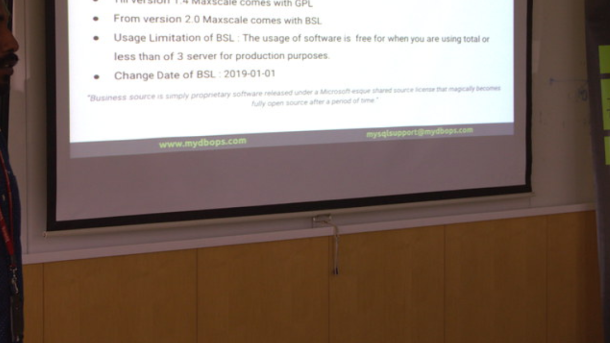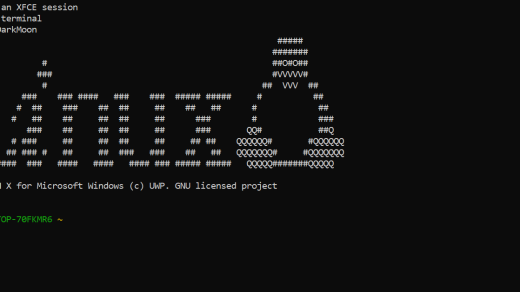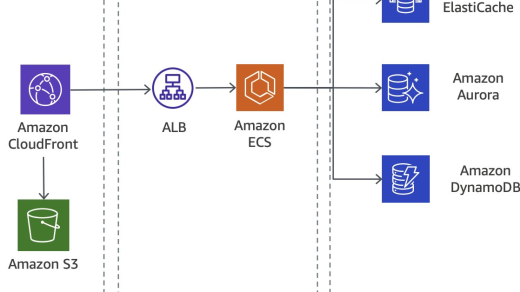Unlocking the full potential of software development and operations, the DevOps Site Reliability Engineer (SRE) role plays a pivotal and dynamic role in today’s technology-driven world.
The Evolution of Site Reliability Engineering
DevOps SRE Job Description
A DevOps SRE (Site Reliability Engineering) job involves ensuring the reliability and availability of software applications and services. This role requires a strong background in software engineering and expertise in Linux.
Responsibilities include monitoring and troubleshooting software bugs, managing data center infrastructure, and implementing automation for continuous delivery. SREs also play a crucial role in disaster response and minimizing downtime by triaging and resolving issues in real-time.
To excel in this role, candidates should have knowledge and experience in software development processes and computer programming. Familiarity with technologies such as virtualization and software-defined infrastructure is also essential.
SREs work closely with software engineers, architects, and other teams to optimize processes and improve the user experience. They follow runbooks and establish service level indicators to ensure the availability and reliability of applications.
While Google and Amazon are pioneers in SRE, companies like Netflix have also embraced this philosophy. SREs contribute to a culture of learning and collaboration, driving the adoption of best practices in software development and infrastructure management.
To pursue a career in DevOps SRE, individuals can consider taking Linux training courses on platforms like Coursera. Developing skills in automation, process optimization, and distributed computing is crucial for success in this field.
Software Engineering in SRE and DevOps

As a Software Engineer in SRE and DevOps, your main responsibility is to design, develop, and maintain software applications that support the continuous delivery and operation of large-scale systems. You will be involved in the entire software development process, from designing and coding to testing and deployment.
In this role, you will work closely with cross-functional teams, including software developers, system administrators, and operations engineers, to ensure that software bugs and issues are identified and resolved promptly. You will also be responsible for managing data center infrastructure and optimizing software performance to minimize downtime and improve user experience.
To excel in this role, you need to have a strong understanding of software development best practices, as well as experience with software-defined infrastructure and virtualization technologies. Additionally, knowledge of service level indicators and service level objectives is essential for monitoring and maintaining the performance and reliability of applications.
Troubleshooting and Support Escalation in SRE and DevOps

In the world of DevOps and SRE, troubleshooting and support escalation are vital skills that help ensure smooth operations and efficient problem-solving. When issues arise, whether it’s a software bug, data center management challenge, or application software malfunction, professionals in these roles must be equipped to quickly identify and resolve them.
With a strong foundation in computer programming and an understanding of the software development process, DevOps and SRE experts have the knowledge to dive deep into complex systems and pinpoint the root cause of problems. They are adept at using tools like Google and other search engines to find relevant information and stay up-to-date with the latest industry trends and technologies.
When troubleshooting, these professionals rely on runbooks and established protocols to guide them through the process. They possess the skills to analyze server performance, optimize programs for improved efficiency, and reduce latency to ensure real-time computing.
Support escalation is another crucial aspect of their role. In emergency situations, such as a disaster response or a service outage, DevOps and SRE professionals must act swiftly to mitigate the impact and restore normal operations. They collaborate with cross-functional teams, including architecture, engineering, and operations, to address the issue and minimize downtime.
To excel in troubleshooting and support escalation, DevOps and SRE professionals must have a continuous learning mindset. They stay updated with the latest technologies and industry best practices, often leveraging platforms like Coursera to enhance their skills. Additionally, they possess a deep understanding of the technology stack, including proprietary software and distributed computing, enabling them to make informed decisions and optimize processes for speed and efficiency.
Optimizing the Software Development Life Cycle in SRE and DevOps
To excel in this role, you need a combination of technical skills and a deep understanding of the software development lifecycle. Linux training can be immensely helpful in gaining the necessary knowledge and expertise.
By mastering Linux, you can effectively manage data center operations and troubleshoot software bugs. Linux also plays a vital role in optimizing program performance and reducing latency.
In addition to technical skills, a DevOps SRE should also possess strong problem-solving abilities and the ability to work in a fast-paced, real-time computing environment.
Furthermore, familiarity with popular tools such as search engines and application software like Netflix can enhance your understanding of the DevOps SRE role.
As a DevOps SRE, you will be responsible for ensuring high availability and reliability of services. This requires expertise in service level indicators and developing runbooks for triage and emergency situations.
Collaboration and communication are crucial for success in this role. You will work closely with architects, engineers, and other teams to optimize processes and promote a culture of continuous improvement.
Similarities between SRE and DevOps
SRE and DevOps share several key similarities in their approaches to software development and operations. Both focus on improving the reliability and efficiency of systems, and both require a strong understanding of Linux and other relevant technologies.
In terms of their job descriptions, SREs and DevOps professionals often work closely together to ensure the smooth running of systems and applications. They both have a deep understanding of software bugs and the ability to troubleshoot and fix them. They also have expertise in data center management and are responsible for optimizing processes to minimize latency and improve speed.
SREs and DevOps professionals also play a critical role in the product lifecycle. They work closely with developers to ensure that applications are designed with scalability and reliability in mind. They create runbooks and perform triage to quickly address any issues that arise. Their goal is to maintain service level indicators and ensure that systems are performing at their best.
Both SREs and DevOps professionals have a strong focus on automation and program optimization. They leverage tools and technologies to automate processes and reduce manual efforts. They also work on improving the architecture of systems to make them more efficient and scalable.
While there may be some differences in the specific responsibilities and skill sets required for SRE and DevOps roles, the overarching philosophy and goals are very similar. Both roles are focused on improving the reliability and efficiency of systems, and both require strong Linux skills and a deep understanding of software development and operations.
Career Prospects for SRE and DevOps Engineers
As an SRE or DevOps engineer, you will have the opportunity to work on cutting-edge technologies and collaborate with cross-functional teams to ensure smooth operations. Your role will involve designing, implementing, and maintaining infrastructure, as well as automating processes to enhance efficiency.
One of the key skills required for this role is expertise in Linux. Linux is widely used in server environments and having a strong understanding of its fundamentals is essential. Taking Linux training can greatly enhance your understanding and proficiency in this area.
In addition to Linux, knowledge of other technologies such as cloud computing, containerization, and automation tools is highly valuable. These skills will not only make you more marketable but also enable you to build scalable and resilient systems.
Being proficient in troubleshooting and resolving software bugs is another crucial aspect of the job. You will be responsible for identifying and fixing issues that may impact the performance or reliability of the system. This requires a deep understanding of the product lifecycle and the ability to work with developers to implement solutions.
As an SRE or DevOps engineer, you will also be responsible for creating and maintaining runbooks, which are documents that outline the steps to handle common incidents or processes. These runbooks serve as a reference guide for troubleshooting and ensuring continuity of service.
Understanding search engine optimization (SEO) is also beneficial as it helps improve the visibility of the company’s products or services. This involves optimizing websites and content to rank higher in search engine results.
Companies like Amazon rely heavily on proprietary software to power their operations. Familiarity with such systems can give you a competitive edge in the job market. Additionally, having knowledge of service level indicators and engine optimization techniques can help you deliver high-performance solutions.
Job Titles and Salaries in SRE and DevOps Engineering

| Job Title | Salary |
|---|---|
| Site Reliability Engineer (SRE) | $110,000 – $160,000 |
| DevOps Engineer | $100,000 – $150,000 |
Exploring the Pros and Cons of SRE: Is it the Right Path for You?
When considering a job in DevOps Site Reliability Engineering (SRE), it’s important to weigh the pros and cons to determine if it’s the right path for you. SRE offers several benefits, such as the opportunity to work with cutting-edge technology and solve complex problems. Additionally, SRE roles often come with attractive salaries and benefits.
However, there are also potential drawbacks to consider. SRE positions can be demanding, requiring individuals to be on-call and available to handle system issues 24/7. This level of responsibility may not be suitable for everyone. Additionally, the role often involves working in a high-pressure environment where quick thinking and problem-solving skills are crucial.
It’s important to assess your skills and interests to determine if a career in SRE aligns with your goals. Linux training is highly recommended as it forms the foundation of many SRE roles. Understanding Linux will give you the necessary skills to work with servers and perform troubleshooting tasks. Additionally, knowledge of programming languages, such as Python or Java, can be valuable for automating tasks and improving system efficiency.
Ultimately, deciding whether SRE is the right path for you depends on your passion for technology, ability to handle high-pressure situations, and willingness to continuously learn and adapt. By carefully considering the pros and cons, you can make an informed decision about pursuing a career in DevOps SRE.



